How Google’s Search Generative Experience Affects Google Business Profiles
Reputation Staff Writer

Google’s Search Generative Experience (SGE) is a new way to search for information that uses AI to generate more comprehensive and informative answers to user queries. SGE can also be used to generate summaries of local businesses, which can appear in Google Search results. This begs the question: how does the rise of SGE affect the most important local search ranking signal – Google Business Profiles?
How SGE Changes Local Search
For context, let’s first review how SGE changes search. SGE uses generative AI to offer complete snapshots of content as answers to queries, rather than simply providing limited snippets and website links. This approach allows search to unfold as a series of refined questions and follow-ups, similar to the way ChatGPT functions.
SGE changes how people search for businesses locally. Reputation CMO Liz Carter illustrated this point well when she described how the traditional search is changing. To borrow from Liz’s post: Let’s say you search for “Subaru dealers near me.” If you use traditional Google search, results will consist of a bunch of sponsored links and a 3-pack (a format for displaying top results for business pages):
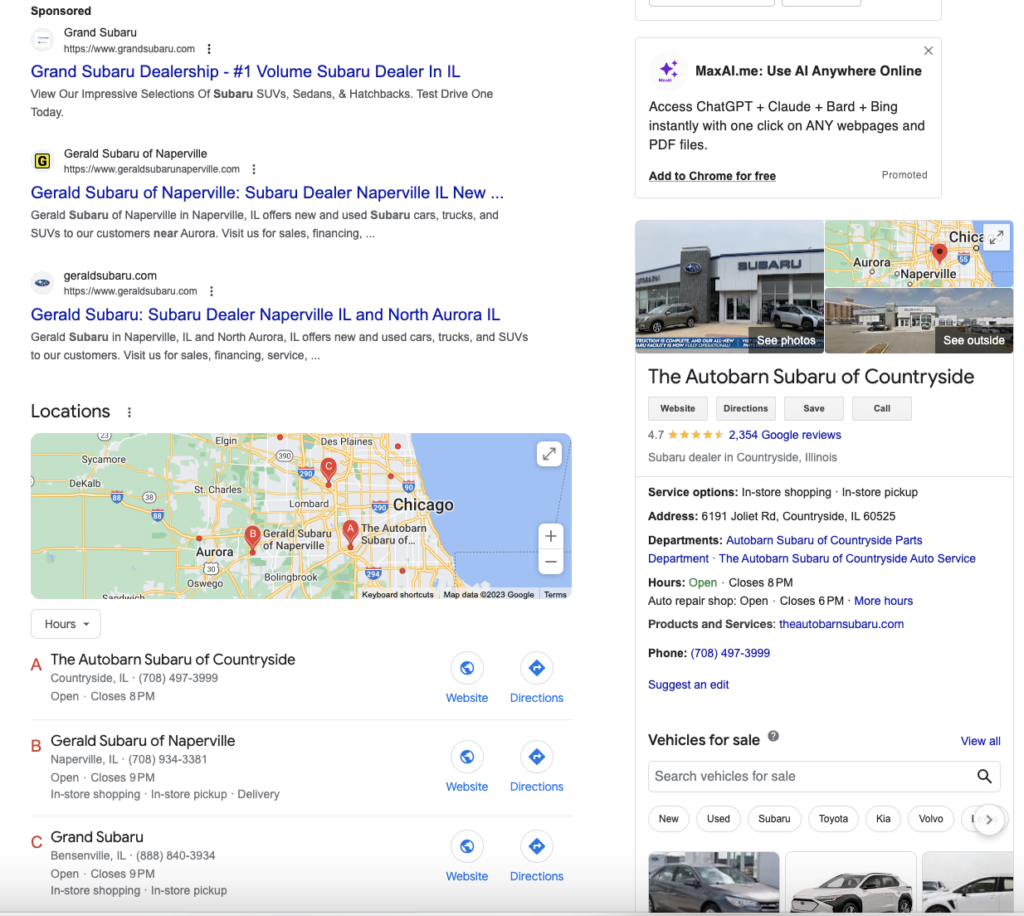
But when you use SGE to perform the same search, you get a concise summary of nearby dealers – and notice the customer ratings appearing alongside each location. SGE has culled those dealers’ sites, listings, and everywhere else their ratings/reviews appear in order to summarize this useful information. You also get a carousel of local dealers’ websites. Ads are not prominently displayed – although they most certainly will soon given how dependent Google is on ad revenue.
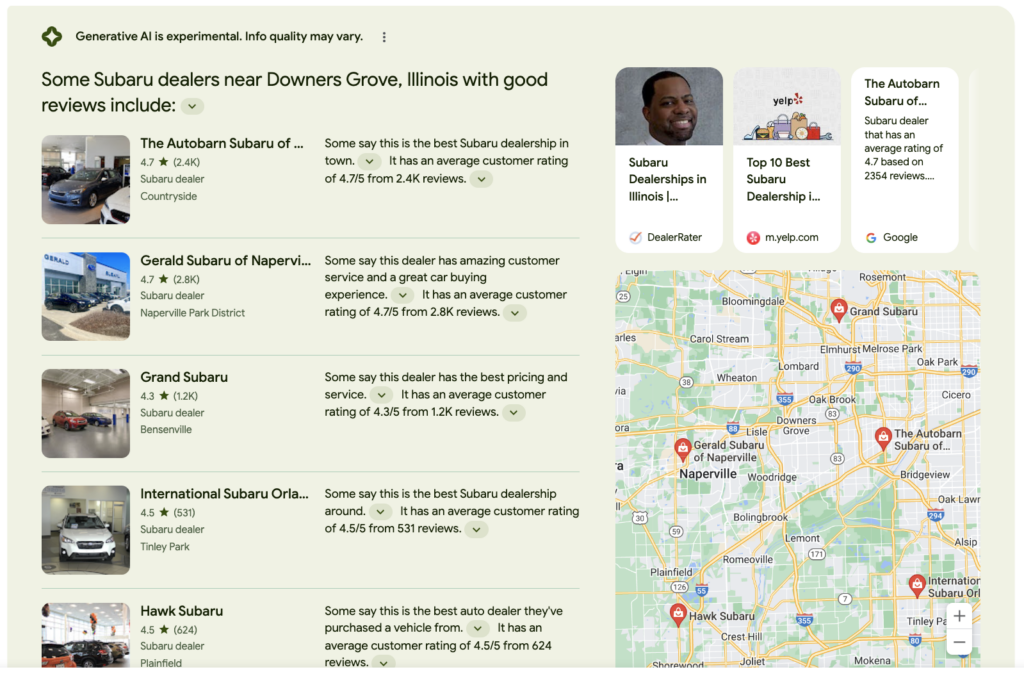
Now look what happens if you provide more context and ask SGE a follow-up question to find out which dealers near you get the best reviews:
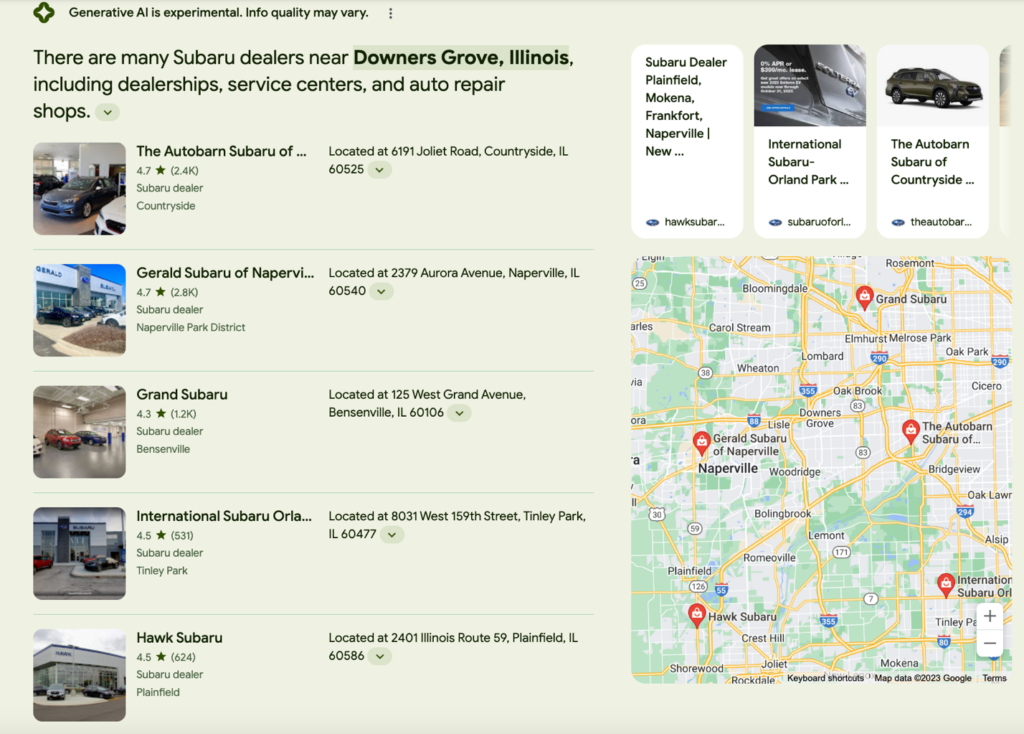
SGE provides even more useful information, including a summary of customer comments. But if you ask traditional Google Search the same question, Google peppers my results with more ads – and a bunch of links to visit other sites, which requires the user to do more hunting to find out what they want to know. The user experience with traditional search does not even compare to SGE.
Now let’s try a more refined search – this time, service departments for Chevrolets:
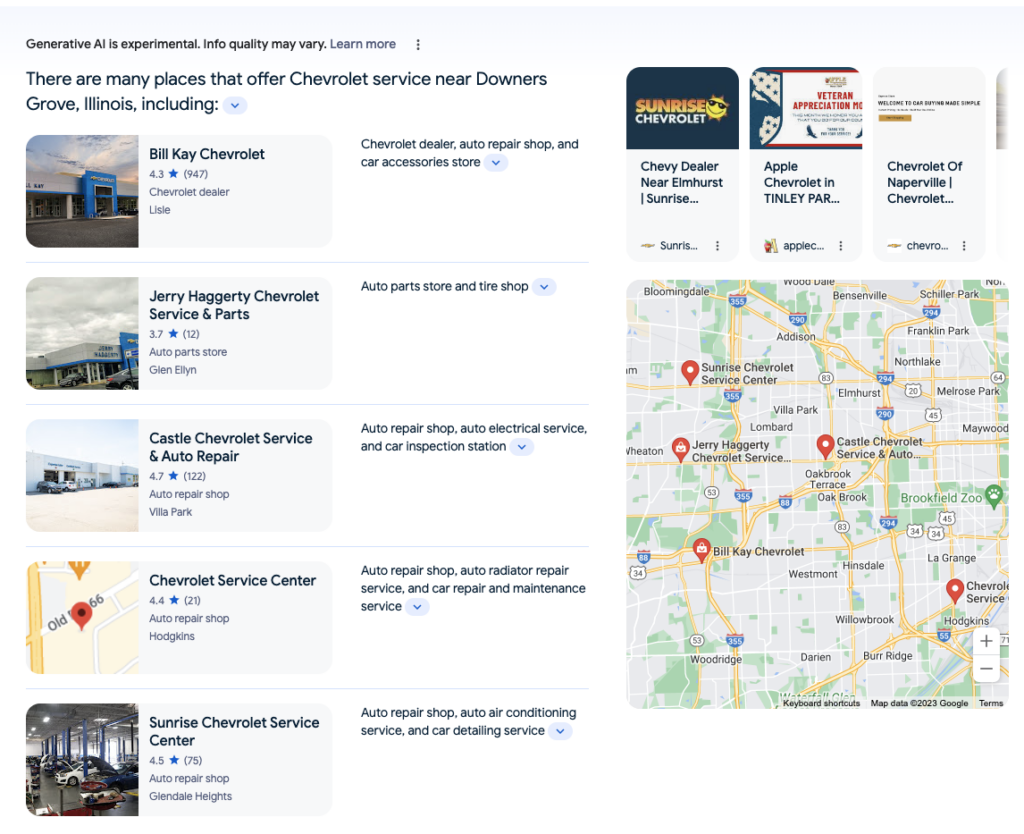
SGE gives the user service department listings for Chevrolet dealers in four out of five results, ratings for their service history, and some details about the kind of service they provide. Clicking on those results takes the searcher right to the service listings. (On a related note, this is why car dealerships should maintain separate listings for Sales, Parts, and Service. Google permits them to do so, and this provides a better search experience for potential customers.) Although traditional search also uncovers service listings, only three listings appear, and no ratings or details accompany the listings.
This experience is similar for non-branded searches, say “best tacos near me,” which reveals descriptive answers about restaurants that serve tacos and also get the best ratings/reviews – and remember, these results appear above any other organic and paid search results. Also note the additional details such as “laid-back spot with margaritas and steak tacos” and “barbecue tacos on the weekend.”
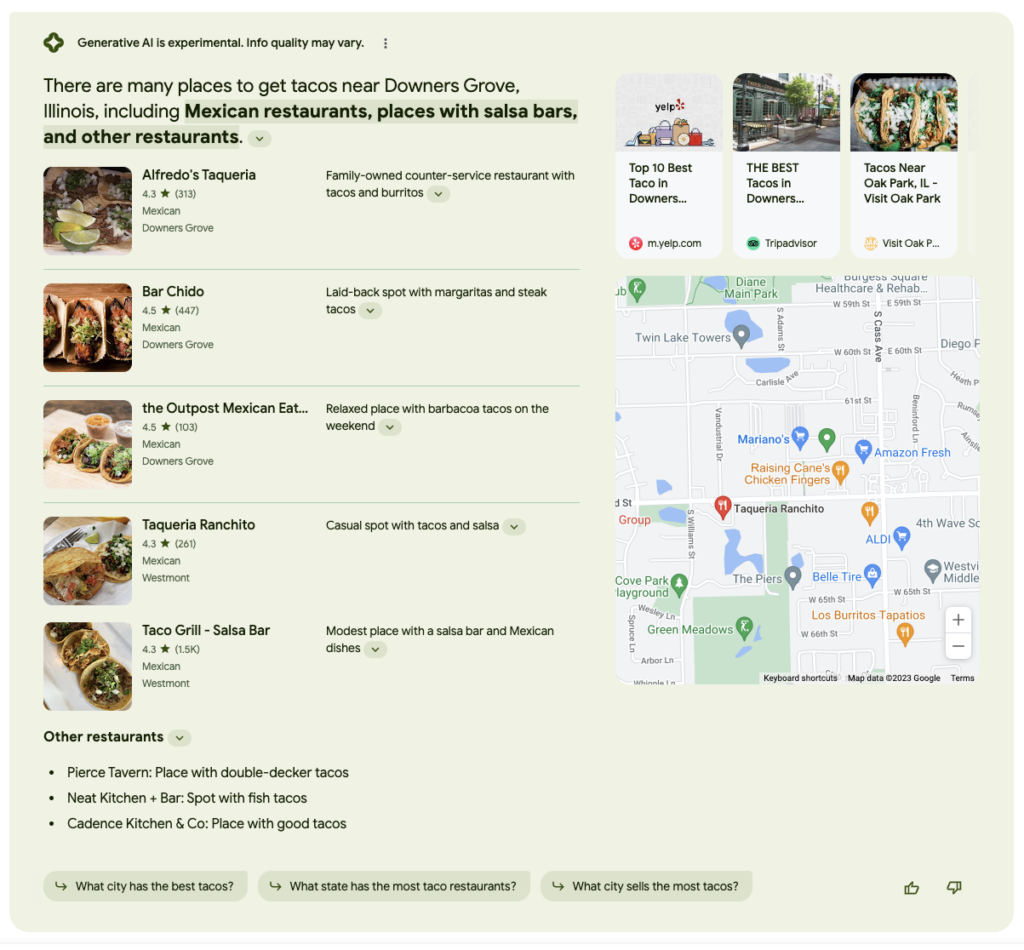
These examples also illustrate something else: Google is keeping users engaged with better quality content and a more conversational style of presenting search results that encourages more highly refined follow-up searches. Granted, people who simply need to complete utility searches (such as movie times nearby) won’t necessarily care to have a deep conversation in order to complete their search. But even so, they will have a better user experience because the content will appear above ads.
What Businesses Should Do
- It’s more important than ever to keep your GBP listings accurate, complete, and up to date. To create these rich user experiences via SGE, Google is drawing on your GBP listings. You need to tie your local SEO strategy to both your website and your GBP listings. Those profiles present an opportunity to appear higher up and more often in conversational query results. Use language that resonates with your readers and makes them feel like you’re having a one-on-one conversation. Incorporate longtail keywords naturally into your content to ensure they flow seamlessly within the context.
- Accumulate positive ratings/reviews on your GBP listings. As you can see from the examples above, AI will do the heavy lifting of finding ratings/reviews and surfacing the most representative ones in SGE results. As Liz noted in her post, we know businesses have hesitated to ask for reviews with a debate on whether you are just asking for negative feedback, but we know that more than 80% of your customers are a “positive majority.”
- Ask for detailed insights from your customers on your GBP listings. It is evident that SGE is currently offering concise overviews of select feedback regarding businesses (e.g., commendations on a dealer’s excellent customer service and enjoyable car purchasing journey). As AI evolves, it will enable users to pose more nuanced inquiries about local enterprises, like “Which dealership is highly rated for selling the best EVs?” While SGE isn’t quite there in delivering such refined search capabilities, it’s important to note that it’s in its nascent phases. There’s a foreseeable future where language models will yield more comprehensive and nuanced information. Businesses that have detailed reviews incorporating key terms stand to gain.
- If you are in the auto industry, make sure you optimize all your GBP listings. Google permits dealerships to have multiple GBP listings (for sales, service and parts). In addition, Google makes special allowances for organizations such as healthcare providers and insurance companies that include individual practitioners with their own GBP listings– making the optimization of their listings more complicated but potentially rewarding.
- Make sure your websites are also up to date and consistent with the content you share on your listings. Because of the website carousel provided in SGE results, users might simply click to your site directly from the results to do a deep dive into your product inventory – or they might visit your listing first. Either way, your website needs to be timely and consistent.
Bottom line: if you’ve been managing the basics of keeping your GBP listings up to date and accurate, you have a strong head start. Keep managing the basics, folks. Optimize your sites and listings with findable, accurate information. Whether someone is visiting your site or your site’s information is being used in a user conversation on SGE, Google (and the user) need accurate and helpful information to trust it.
